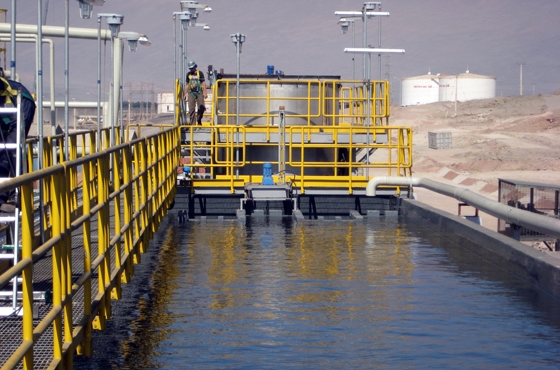Qatar is working on a major pro-environment project aimed at safeguarding the country's marine ecosystem by targeting "near zero" water discharge to sea by 2016. The initiative is led by the Ministry of Energy and Industry in conjunction with the Ministry of Environment and involving various companies working in the country's energy and industry sector. A recent report showed that Qatar's long-term plan is to achieve "zero liquid discharge" of processed wastewater by end-2016.
The energy and industry sector is aiming to achieve this primarily through investments in water recycling and reuse, using wastewater treatment plants and using treated wastewater to irrigate green zones as well as re-using water in core operations and production processes. "There is much to be done to achieve the ambitious goal of near zero water discharge, and in the meantime the sector is reducing the impact of water discharged by monitoring effluent quality and temperature," said the latest Qatar Energy and Industry Sector Sustainability Report.
In 2012, some 16 companies reported on their total water discharge, representing 48% of the total companies invited to participate in the Sustainable Development Industry Reporting (SDIR) program, a sector-wide initiative led by HE the Minister of Energy and Industry, Dr Mohamed bin Saleh al-Sada. With reporting in its early stages, there are challenges relating to the consistency of measurement and data reliability. Data quality is expected to improve in future reports, it said. The total amount of water discharge for the 16 reporting companies in Qatar was 110,733mn cu m at the end of 2012, the report said. Only two companies reported a reduction in their water discharge in 2012.
Total E&P Qatar reported a reduction of 3.1mn cu m in 2012 (a reduction of 12% compared to 2011) and Qatar Vinyl Company (QVC) reported a reduction of 5% in 2012. The oil and gas (E&P) subsector reduced total water discharge in 2012, while discharge volumes in the other three subsectors increased, the report showed. Companies recognized the need for seawater returned to the sea to be at temperatures and salinity levels that do not harm marine life, the report said. Conditions of discharge are regulated by the Ministry of Environment, and seawater used for cooling is tested to ensure it does not breach levels agreed within companies' consent to operate.
Data reported on discharges to sea for the sector is not complete, with only five companies providing water discharge composition data. With reporting in its early stages, there are challenges relating to the consistency of measurement and data reliability. However, from those five companies, four have reported zero oil and chemical in their water discharge. In alignment with the goals of the National Development Strategy (NDS), Mesaieed Industrial City companies are working to design and install a comprehensive seawater quality monitoring network to evaluate the effectiveness of treatment options and assess the cumulative effect on the receiving water body.
Some nine companies reported the amount of water they recycled, which totaled 7mn cu m in 2012. "While the limited amount of data has made it difficult to identify trends in performance, there are a number of initiatives of note where companies have begun water recycling," the report said.
Gulf Times
19 October

























































